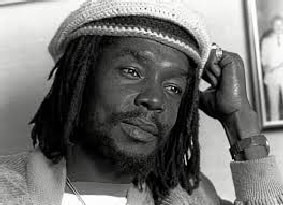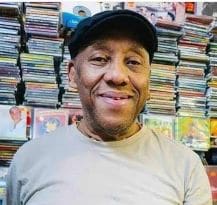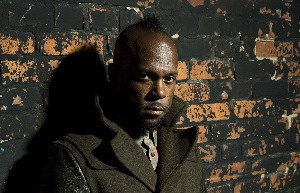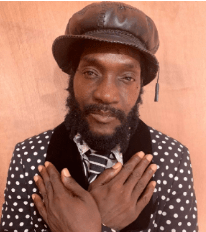30 years later, “Steppin Razor” – Peter Tosh only gets greater

MIAMI – September 11, 2017 marked thirty years since the untimely departure of the late great Peter Tosh. To be more straightforward his “departure” was an assassination (I’ll leave the reader to do her/his due diligence and ascertain the “facts”).
Steppin Razor as he was otherwise called, drew a lot of “blood” with his straightforward criticisms of politics and the Jamaican government both in speech and song.
He was a rebel fighting against the establishment, fighting against poverty and inhumanity. He was an ardent proponent of Rastafarianism and he suffered the physical scars as punishment for being an outspoken advocate of his beliefs.

Peter Tosh, born Winston Hubert McInTosh was born in Grange Hill and grew up in humble surroundings in Belmont, Westmoreland. He was a member of his church’s choir at an early age and learned to play guitar by watching a fellow Belmont resident play, strictly through observation.
At the age of 15 he moved to Trenchtown where he subsequently met Bunny Wailer and Bob Marley (both his juniors).
Under the primary tutelage of vocalist Joe Higgs, the 3 came together with falsetto singer Junior Braithwaite and backup singers Beverly Kelso and Cherry Smith to form the Wailin Wailers. Their first single “Judge Not” was recorded in 1961 and released the following year.
The “Wailin Wailers” enjoyed a moderate success, but were not necessarily “household names” either a yard or abroad. Much of their early music was recorded as ska (one of the forerunners of reggae) The “Wailin Wailers” eventually became known as “The Wailers”. Tosh sang lead on many of these early songs which include the likes of “Simmer Down”, “One Cup of Coffee”, and Get up Stand Up”. The former urged the rude boys to cool down and behave themselves. The promotion to “bandleader” of Marley by (the head of Island Records) Chris Blackwell and the subsequent renaming of the group to “Bob Marley and the Wailers” helped spur the departure of both Peter Tosh and Bunny Wailer.
After leaving the Wailers, Peter embarked on a solo career. “Legalize It” in 1976 was Tosh’s first solo album. The album’s most successful single (the title track) calls for the Jamaican government to legalize the smoking of ganja, Tosh subsequently says that after it is legalized, that he will help to advertise it (ganja).
Tosh went on to record subsequent albums among them Equal Rights (1977), Bush Doctor (1978), Mystic Man (1979), and Mama Africa (1983). Some of the most notable songs include all the aforementioned title tracks along with a cover version of rock&roll founder, Chuck Berry’s “Johnny Be Goode”. “Glass House”, “Not “Gonna Give It Up”, “Nuh Feel Nuh Way”, and “Maga Dog” are also some of Tosh’s better known songs. Additionally Tosh was filmed in several biographical documentaries most notably Steppin Razor: Red X. He also appears in “Heartland Reggae”. Tosh played a minor role in the classic 1978 film Rockers.
Peter Tosh was regularly beaten by the police for being “subversive”. As previously mentioned, he was an advocate and regular consumer of Ganja, and thought nothing of smoking herb in public.
In one song he even says he would love to travel to England so that he can smoke it alongside the queen in Buckingham Palace.
At the 1978 One Love Peace Concert, Tosh openly lambasted the leaders of the government; the prime minister PNP Michael Manley, and the JLP leader of the opposition Edward Seaga. His speech which lasted for the better part of 10 minutes or more urges citizens particularly poor people to reject the promised made by those involved in “Politricks”. This is indeed the same concert where Jacob Miller is joined onstage by the PNP and JLP dons respectively, including Byah Mitchell, “Tek Life”, Tony Welch, and Claudie Massop to celebrate the newly formed Peace Treaty.
Later on that night Marley is joined onstage by Manley and Seaga, where he succeeds in joining their hands above his head in a show of unity. Conversely Tosh, urges Jamaicans not to put their beliefs in the political “Shitstem”. His colorful remarks about both leaders was rewarded with one of the most severe police beatings that Tosh endured. His accounts, corroborated by others who witnessed or participated in the beatings, claim that Tosh was beaten for hours upon end by 3 or four policemen with nightclubs in Halfway Tree’s Police Station. Beatings which caused some of his dreadlocks to fall out.
Tosh’s legacy lives on today. He played a critical influence in the inspiration of world renowned reggae star, South Africa’s late Lucky Dube. Dube, like Tosh was also a champion of human rights. His death, almost 20 years to the day of Tosh’s death, is also an apparent assassination. Even a fan of both singers like myself, has trouble distinguishing the voices especially in Dube’s version of “Mama Africa”. In 2011, singer Bushman did an outstanding tribute album to Peter Tosh, even more so than his predecessor Lucky Dube, Bushman sounds almost like a “dead ringer” (no pun intended) for Tosh.
Andrew Tosh, one of Tosh’s eldest sons has taken up the profession of his father, and enjoys a successful international career.




